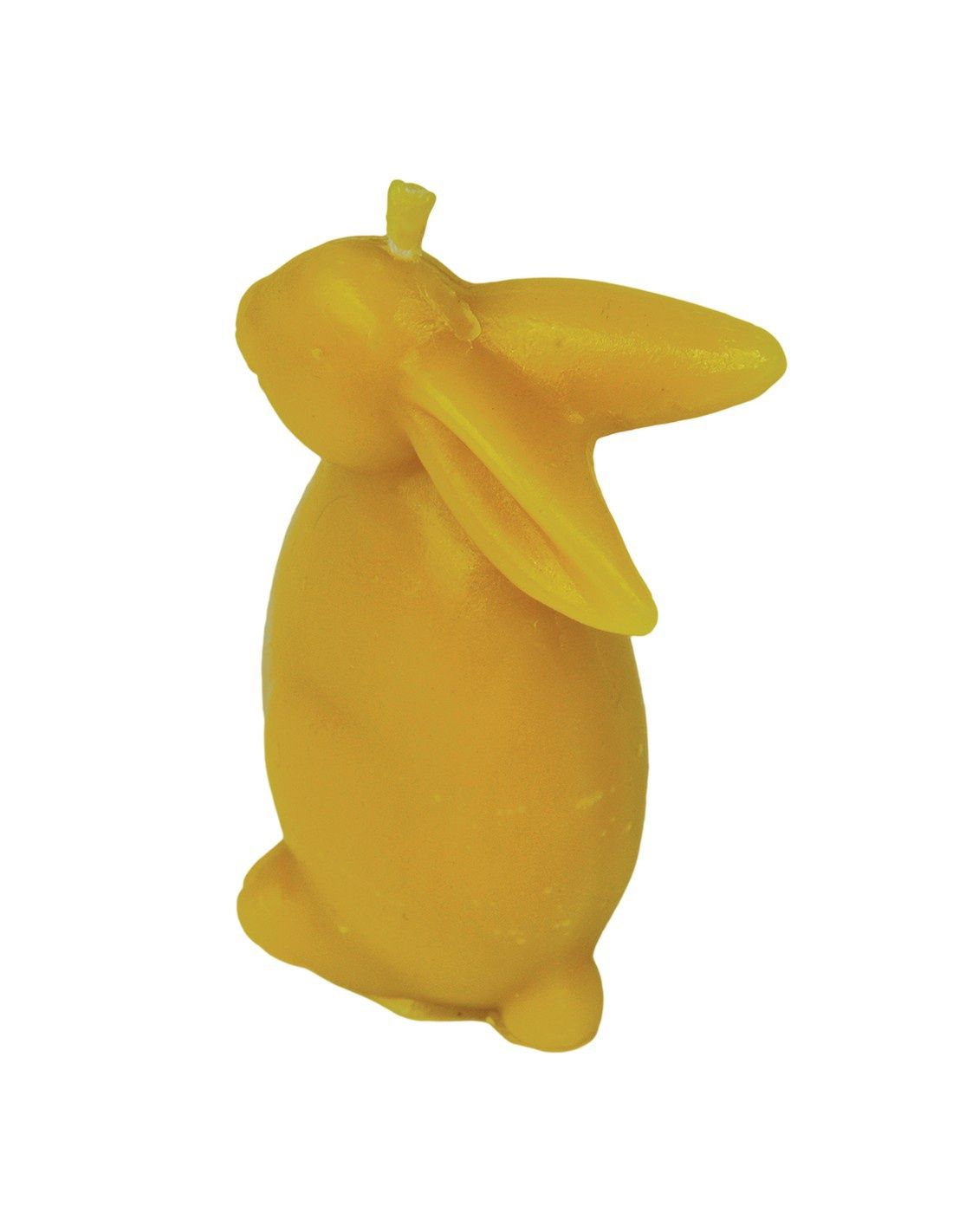Silicone Mould - Hare, smooth, sitting
SILICONE MOULD - FLAT HARE
Height: 70 mm
Wick: 3×6
Wax weight: 35 g
The moulds are made of flexible and durable silicone with plastic properties that allow for repeated use.
Before filling the mold with liquid wax, it is recommended to spray it with silicone spray . Silicone is both a preservative for the mould and a factor that makes it easier to remove the finished candles. The variety of mould designs offered will ensure that you can prepare a candle for any occasion.
Ready-made beeswax candles can be freely decorated with natural products, e.g. coffee beans, etc.
The prepared candle can be lightly sprayed with silicone spray, which will make it shine.
When preparing candles, you can "ennoble" the candles a bit by adding scented oils intended for candles to the still liquid wax. Candles made this way will be a unique decoration as well as an original gift for family and friends.
How to make a beeswax candle?
You will need:
» silicone mould,
» wick of appropriate thickness, matched to the size of the candle (the larger the candle, the thicker the wick)
» rubber band
» toothpick
» silicone spray (optional) - the mould can be sprayed with silicone spray inside - if available it's a more difficult pattern, it will be easier to take it out.
1. Preparation of the mould
If we are casting candles with a complex pattern, they should be sprayed with silicone spray from the inside. Then it will be easier to remove the finished candle from the mould. Then we cut off the appropriate length of the wick (it must be longer than the form) and pull it through the middle. The next step is to put the rubber bands on the form. Finally, insert a toothpick into the end of the wick and tighten it well.
2. Flooding the mold with wax
Melt the wax in a pot (preferably enameled). Before pouring, the wax should be at the appropriate temperature - approximately 60°C. It should not be too cold or too hot. Pour the wax in a slow stream so that it reaches all the recesses. The hardening time of the wax depends on the size of the silicone mould.
3. Removing the candle from the mould
When the wax hardens and is cold, remove the rubber bands, open the mould and gently remove the candle. Then we take out the toothpick and cut the wick at the base, leaving about 1 cm at the top of the candle.
The final stage of finishing the candle is to "process" the bottom of the candle with a knife. The tip of the wick can be dipped in warm wax.
Mould use recommendations:
When making castings from moulds, you must take precautions, bearing in mind that you are working with a hot substance.
The manufacturer is not responsible for situations resulting from improper use.
We recommend wicks of various sizes for silicone moulds , and we also offer a wide range of dyes and fragrances.
MULTIFUNCTIONALITY OF FORM
Silicone moulds can be used for various raw materials:
• beeswax
• soy wax
• palm wax
• paraffin
• ceramic plaster
• creative concrete
• epoxy resin
• soap base

